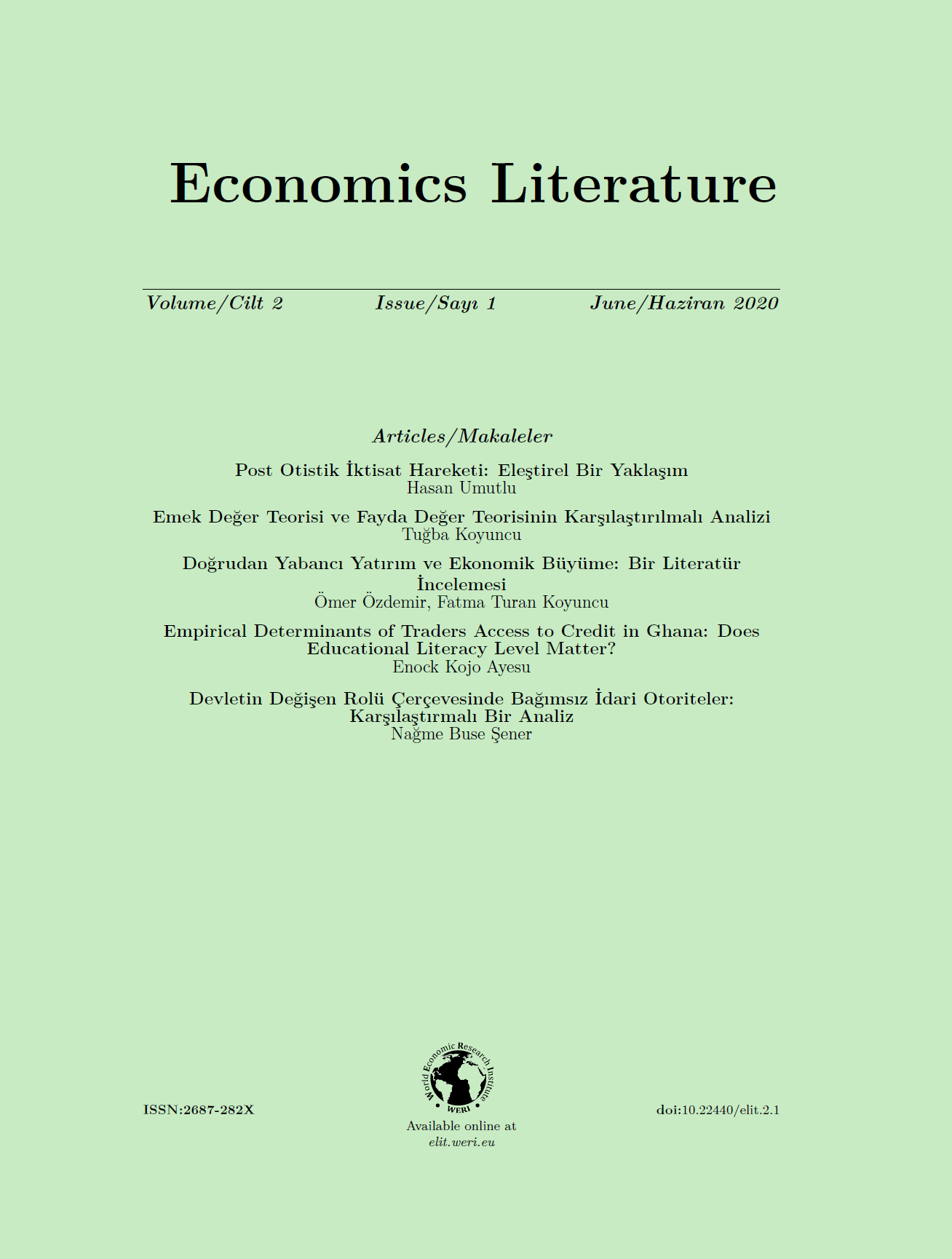
Economics Literature
Yazarlar: Kübra Aycan Gelekçi, Arif Kılıç
Konular:-
DOI:10.22440/elit.1.1.1
Anahtar Kelimeler:Classical and Neo-Classical Economics,Industrial Revolution,Marginal Revolution,Labor Theory of Value
Özet: The story of the industrialization process began in England has brought about a deep transition in terms of relations of production, and this led to brand new objective conditions that caused the economy to go into a major metamorphosis by changing the institutional and intellectual structure. This process has been influential in changing the discipline of economics. The classical theory of economics, which began with optimistic terms like freedom and perfect competition, evolved into “dismal science”, got replaced by a transition called marginal revolution, and furthermore, with critics, by Neo-classical theory of economics which was mesmerized by mathematics. While moving away from practice for the sake of being scientific, Neo-classical economics tried to utilize laws of physics on human beings, put the emphasis on the principle of rationality and the perceived economy as a machine. The theory’s inability to explain the contemporary world and its habit of reducing economics to abstract mathematics, combined with its mistaken ideal to explain economics by cause-and-effect relation as in natural sciences, caused economics to be isolated from other disciplines. This study presents a critical approach to the emergence of Neo-Classical economics by discussing the contextual structure and conditions of its birth from a historical perspective.